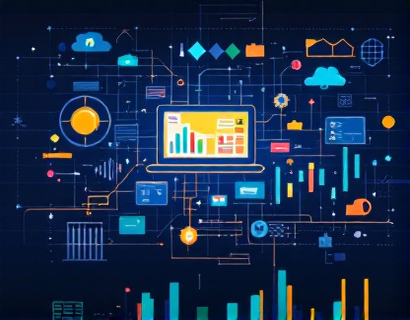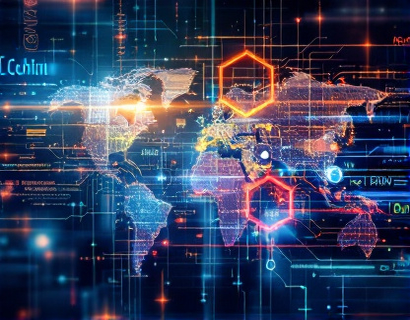Transforming Industries with Premier AI Innovations
The landscape of technology is rapidly evolving, with artificial intelligence (AI) at the forefront of this transformation. The integration of AI into various sectors is not just a trend but a necessity for staying competitive and relevant. This article delves into the world of AI services, showcasing the latest advancements that are reshaping industries and unlocking unprecedented potential. Whether you are a tech enthusiast, a developer, a business leader, or an innovator, this comprehensive platform offers insights into the premier AI solutions designed to drive success and enhance productivity.
Understanding the Power of AI
Artificial intelligence encompasses a broad range of technologies, including machine learning, natural language processing, computer vision, and robotics. These technologies enable machines to perform tasks that traditionally required human intervention, from simple data analysis to complex decision-making processes. The power of AI lies in its ability to learn from data, adapt to new inputs, and perform tasks that historically demanded human intelligence.
Machine learning, a subset of AI, focuses on building systems that can learn from and make predictions based on data. This capability is crucial in industries such as finance, healthcare, and manufacturing, where data-driven decisions can significantly impact outcomes. Natural language processing (NLP) allows machines to understand, interpret, and generate human language, revolutionizing communication and customer service. Computer vision enables machines to interpret and make decisions based on visual data, transforming fields like security, automotive, and retail. Robotics combines these technologies to create intelligent machines capable of performing physical tasks.
Industry-Specific AI Solutions
The versatility of AI makes it applicable across a wide range of industries, each with its unique challenges and opportunities. Here, we explore how AI services are transforming key sectors, providing tailored solutions that enhance efficiency, accuracy, and innovation.
Healthcare
In healthcare, AI is revolutionizing patient care and operational efficiency. AI-driven diagnostic tools can analyze medical images with high accuracy, often surpassing human radiologists in certain tasks. These tools help in early detection of diseases such as cancer, improving patient outcomes. AI also optimizes hospital workflows by predicting patient admissions, managing resources, and reducing wait times. Personalized medicine, powered by AI, tailors treatments to individual patients based on their genetic profiles and medical history, leading to more effective therapies.
Finance
The finance industry is heavily reliant on data, and AI is a game-changer in this domain. AI algorithms can process vast amounts of financial data to identify patterns, predict market trends, and detect fraudulent activities. Robo-advisors use AI to provide personalized investment advice, making financial services more accessible and affordable. AI-powered chatbots enhance customer service by handling queries and transactions 24/7, improving customer satisfaction and reducing operational costs.
Manufacturing
In manufacturing, AI is driving the fourth industrial revolution, also known as Industry 4.0. Smart factories leverage AI to optimize production processes, predict maintenance needs, and ensure quality control. Predictive analytics powered by AI can forecast equipment failures before they occur, minimizing downtime and maintenance costs. AI-driven robotics and automation systems increase efficiency and precision, enabling mass customization and rapid production cycles.
Retail
Retail is another sector profoundly impacted by AI. AI algorithms analyze consumer behavior and preferences to offer personalized shopping experiences. Recommendation systems suggest products based on past purchases and browsing history, increasing sales and customer loyalty. AI-powered inventory management systems optimize stock levels, reduce waste, and ensure products are always in stock. In-store robots assist customers, providing information and enhancing the shopping experience.
Transportation
The transportation industry is witnessing a significant transformation with the advent of AI. Autonomous vehicles, powered by AI, promise safer and more efficient travel. AI algorithms process real-time data from sensors and cameras to navigate roads, avoid obstacles, and make driving decisions. In logistics, AI optimizes routes, reduces fuel consumption, and improves delivery times. AI-driven predictive maintenance ensures vehicles are always in top condition, reducing breakdowns and maintenance costs.
Benefits of AI Services
The integration of AI services into various industries brings numerous benefits, from enhanced productivity to innovative solutions. Here are some key advantages:
- Increased Efficiency: AI automates repetitive and time-consuming tasks, freeing up human resources to focus on higher-value activities. This leads to faster processing times and higher throughput.
- Data-Driven Insights: AI analyzes large datasets to uncover patterns and insights that humans might miss. These insights can inform strategic decisions, optimize operations, and drive innovation.
- Improved Accuracy: AI systems can perform tasks with a high degree of accuracy, reducing errors and improving the quality of outcomes. In fields like healthcare and finance, this can have a direct impact on patient and customer well-being.
- Personalization: AI enables personalized experiences by analyzing individual preferences and behaviors. This is particularly valuable in retail, marketing, and customer service, where tailored interactions enhance customer satisfaction.
- Cost Reduction: By automating processes and optimizing resources, AI can significantly reduce operational costs. Predictive maintenance in manufacturing and efficient route planning in transportation are just a few examples of cost savings.
Choosing the Right AI Services
With the abundance of AI solutions available, selecting the right services for your industry can be challenging. Here are some factors to consider when evaluating AI services:
- Relevance: Ensure the AI solution aligns with your specific industry needs and challenges. Look for services that have a proven track record in your sector.
- Scalability: Choose solutions that can grow with your business. Scalability ensures that the AI service can handle increasing data volumes and more complex tasks as your operations expand.
- Integration: The AI service should integrate seamlessly with your existing systems and workflows. Compatibility with current technologies is crucial for a smooth implementation.
- Support and Maintenance: Reliable customer support and ongoing maintenance are essential for the long-term success of AI implementations. Look for providers that offer comprehensive support and regular updates.
- Cost: Evaluate the total cost of ownership, including initial setup, ongoing fees, and any additional costs for customization or integration. Consider the return on investment (ROI) to ensure the solution provides value.
Future of AI in Industry Transformation
The future of AI in industry transformation is bright, with continuous advancements promising even greater capabilities. Here are some emerging trends and developments to watch:
Edge Computing
Edge computing brings AI processing closer to the source of data generation, reducing latency and bandwidth usage. This is particularly beneficial for real-time applications such as autonomous vehicles and smart cities, where immediate decision-making is critical.
Explainable AI
Explainable AI (XAI) focuses on making AI decisions transparent and understandable to humans. As AI becomes more prevalent, the need for transparency and accountability grows. XAI helps build trust and ensures that AI systems can be audited and regulated.
Federated Learning
Federated learning allows AI models to be trained across multiple decentralized devices or servers without sharing sensitive data. This approach enhances privacy and security while enabling collaborative learning, making it ideal for industries handling sensitive data such as healthcare and finance.
Human-AI Collaboration
The future of AI is not about replacing humans but augmenting their capabilities. Human-AI collaboration leverages the strengths of both, combining human creativity and critical thinking with AI's computational power and data processing capabilities. This synergy will lead to more innovative and effective solutions.
Conclusion
The integration of AI services into various industries is not just a technological advancement but a transformative shift that can redefine how businesses operate and deliver value. By embracing AI, organizations can enhance productivity, gain competitive advantages, and unlock new possibilities. As AI continues to evolve, the potential for innovation and growth remains vast, making it an essential tool for anyone looking to stay ahead in today's fast-paced world.










































